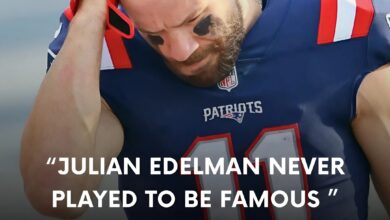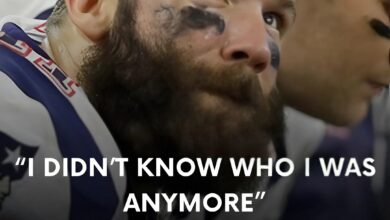“I Lived in Hell!” – Lane Johnson Opens Up About His Tearful Battle with Depression!
OPINION: This article may contain commentary which reflects the author's opinion.
Lane Johnson, the Philadelphia Eagles’ legendary right tackle, may be known for his incredible strength on the field, but behind the scenes, he has fought a silent and harrowing battle. In a candid interview, Johnson revealed that his struggles with depression and anxiety began long before he became an NFL star – they started back in college.
“It felt like I was living in hell,” Johnson admitted, describing the overwhelming sense of darkness that consumed him. The weight of expectations, the pressure to perform, and the isolation he felt made even his brightest moments seem hollow. At his lowest point, Johnson chose to step away from football entirely in 2021, missing a crucial game against the Kansas City Chiefs without warning. His absence stunned fans and teammates alike, but for Johnson, it was a matter of survival.
Returning to his home state of Oklahoma, Johnson disconnected from the world. He shut out his team, his friends, and even his family, desperately searching for clarity. But instead of finding peace, he was engulfed by self-doubt. “I didn’t know if I’d ever come back,” he confessed.
However, Johnson’s turning point came when he decided to speak out. Breaking his silence, he sought professional help and leaned on his closest friends. This act of vulnerability became his greatest strength. Johnson began to understand that admitting his struggles didn’t make him weak – it made him human.
His courageous decision to share his story has inspired countless others. Johnson has since become a vocal advocate for mental health, urging athletes and fans alike to recognize the importance of seeking help. “We all go through battles,” he said. “It’s okay not to be okay.”
Today, Lane Johnson is more than just an NFL star – he’s a beacon of hope for those suffering in silence. His message is clear: Even the strongest among us can feel lost, but with courage and support, there’s always a way back.



